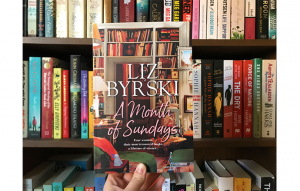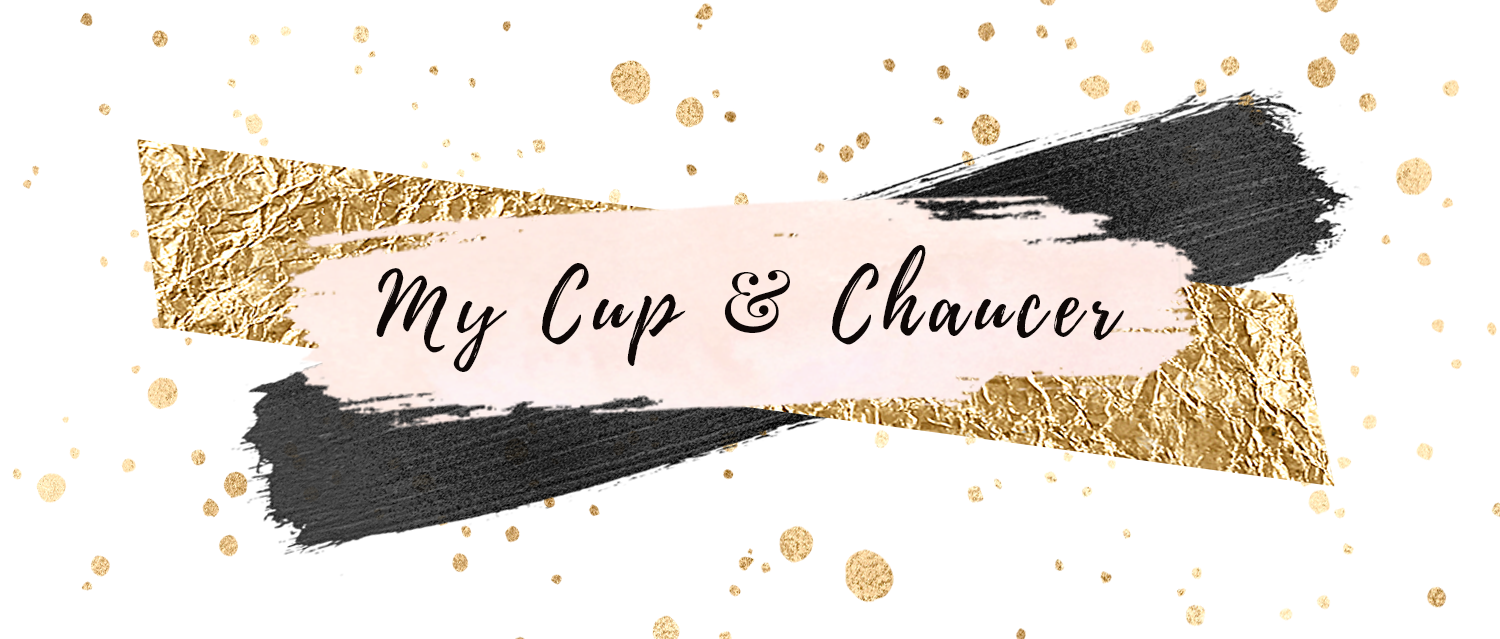Last month I was asked by Pan Macmillan if I’d like to participate in their upcoming blog tour for A Month of Sundays by Liz Byrski. Initially I was reluctant (sorry, Liz, if you’re reading this!) because I’d never read a Liz Byrski novel before and as a crime and thriller junkie it did seem highly different to the sort of book I usually read; happily, I then read the synopsis and was instantly intrigued.

Four women who have been part of an online book club for many years but have never met in person finally decide to do so in the Blue Mountains while one of the women is house-sitting. It sounds like a dream way to spend time, but there is a small catch: each woman has to choose a book that will teach the others more about her. Each week the women will read one of the selected books and then discuss it in a real-life book club on Sunday (hence, a month of Sundays).
A Month of Sundays opens with a letter from Liz herself that talks about the special relationships many women form with books and reading. We use books to talk to each other, to connect with other women, to work out issues in our own lives and, of course, to know that we are not alone. Liz also mentions that she had wanted to write a non-fiction book that explores women’s reading lives and I hope that one day I get to read that book. Her novel is written with such care and tenderness that her respect for the way people read and connect with books practically leaps off the page. She has taught me to reevaluate my own reading life, but more on that later. Liz is clearly well-read and there are lots of literary references in the novel, but the strength of her writing prevents it from ever feeling like a non-fiction book about books.
The four women – Adele, Ros, Judy, and Simone – descend on a house in the Blue Mountains with their books and enough emotional baggage to last a lifetime in tow. One is struggling with increasingly powerful panic attacks as years without a holiday rapidly take their toll, one is dealing with the results that show a debilitating illness, one is recently retired and unsure who she is anymore, and one is about to have an old wound from the past ripped open. Throughout their month of Sundays, each woman is forced to accept the good and the bad about the lives they’ve lived so far and make decisions regarding the lives they want to live in the future.
On this level, I wasn’t able to relate to any of the characters in a meaningful way. I’m over three decades younger than the youngest bookclub member and my youth has thus far prevented me from dealing with any of the major issues deal with in the book. With that said, on a deeper level I saw a lot of myself in this book. I saw my anxieties and worries for my future, I saw my unwillingness to make peace with the changing shape of my body, and I saw my ability to hold onto the past so tightly that it affects every aspect of my present. Most notably, though, I saw my belief that a good book at the right time has the power to change lives reflected right back at me. Frustratingly, I also realised that my current approach to reading is not at all conducive to critical thinking and analysis.
At the heart of A Month of Sundays you will find pages and pages of words and stories. Beyond being a book for booklovers, it’s a book about the importance of female friendships irrespective of your age and finding people who you can truly be yourself around. It’s also about finding yourself and having the courage to redefine what it means to be a person in the world when your circumstances change. I found this book to be sweet and touching and would highly recommend it to the fiction-loving females in my life who regularly read adult fiction (this probably wouldn’t be one for YA readers). In good news for you, it came out just over a week ago so you can find it and read it now!
On a slightly different note, this book came into my life at exactly the right time. Reading has had me feeling stressed and overwhelmed for a few weeks now and at a time when my non-reading life has also experienced significant change, I needed reading to feel relaxing again. It needed to become my escape once more. I’m having to read more than ever at work (in the best possible way) and I was able to pinpoint one of the major stresses as being my Goodreads Challenge. I can be very competitive with myself and I ambitiously set my target to 100 books in 2018 because I felt like that’s what I should have been reading each year. I mean, shit; I still think 100 is too low. But I digress.
Today I removed my Goodreads Challenge. Gone. Done. Nada. Can I let you in on a secret? I should have done it sooner. When you work in the book industry, either in retail or in publishing, your approach to reading changes. Sometimes you have to read things you wouldn’t normally read, which takes you away from the books you’re desperate to dive into. Sometimes you have to read things that aren’t published and may never be published, and thus can’t be added to a Goodreads tally. Sometimes (and this is my favourite one) you come across a backlist title that is so intimidatingly chunky but it still demands to be read, and that takes up a week or two of your reading time. I love what I do but I need to make my reading life better.
So, the Goodreads Challenge is out and that will reduce the pressure to read as quickly as I have been lately. The next step will be to give myself time to think and articulate the reasons why I did/did not enjoy a book. At the moment I feel like I’ve been working my way through books so quickly that as soon as I’ve finished one, I’m immediately on to the next one without much thought about what I’ve just read. The women in A Month of Sundays read so carefully and critically that I was envious. When was the last time I read like that? So, I’m going to channel my inner Pamela Paul and start a BOB – a Book of Books. She wrote about it extensively in My Life With Bob and I’ve never been more irritated for not keeping better records of what I read. There’s no time like the present, eh?
To be honest, what I think I need to do is read more mindfully. I am not usually one to preach mindfulness, but in this case I think it’s a fairly clear self-diagnosis. I need to stop trying to be more, read more, do more, and just focus on what’s most important: the words on the pages.
